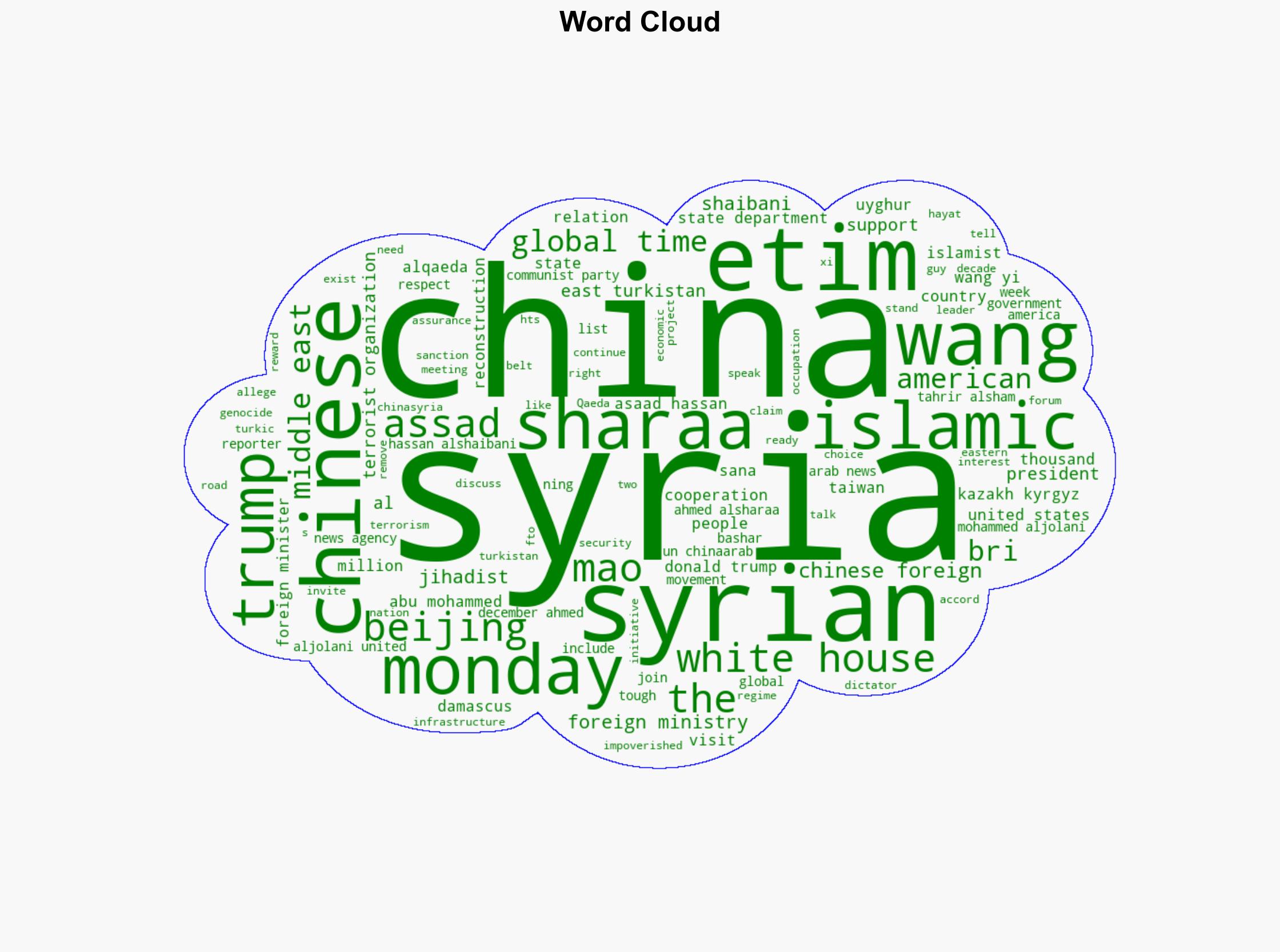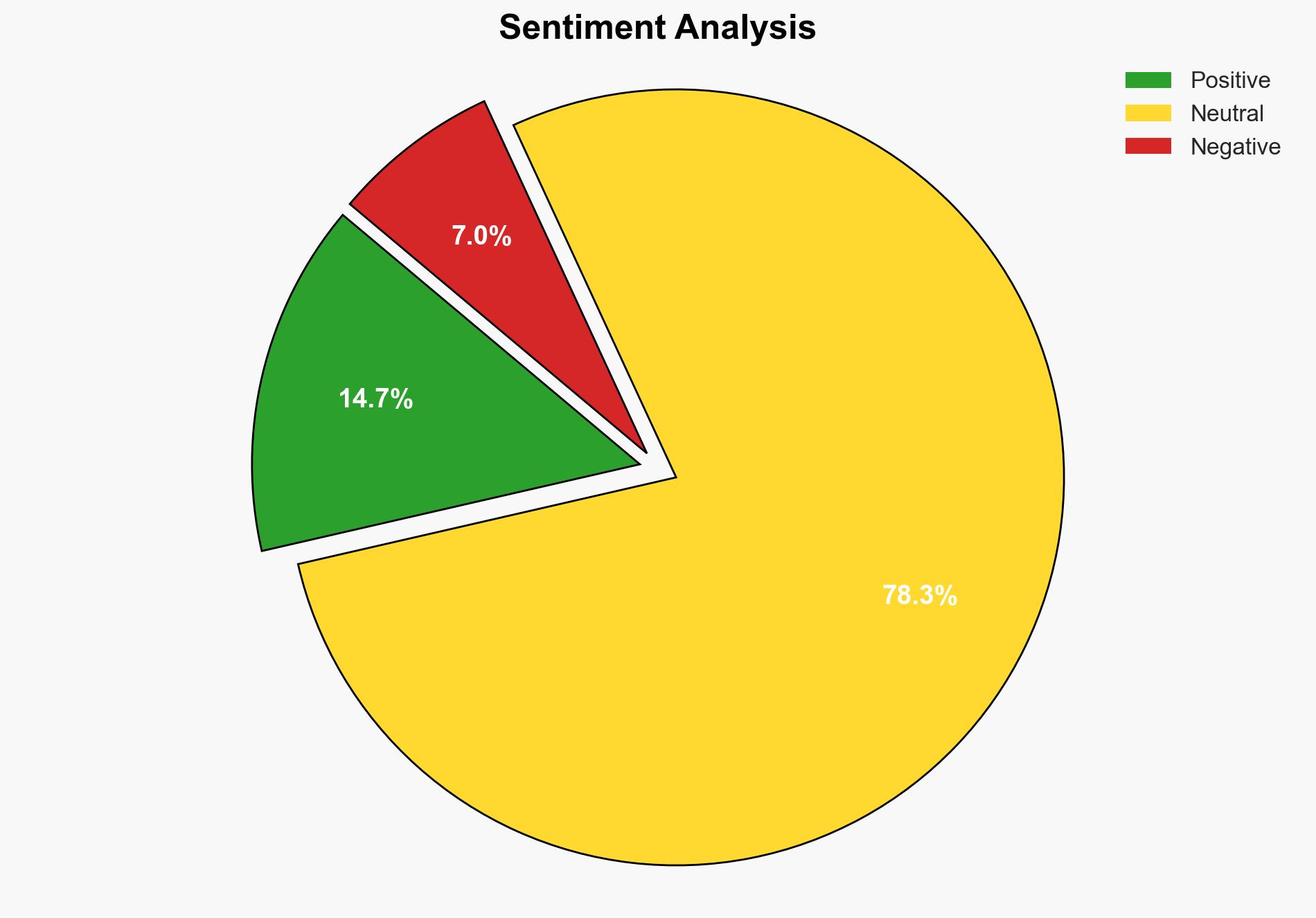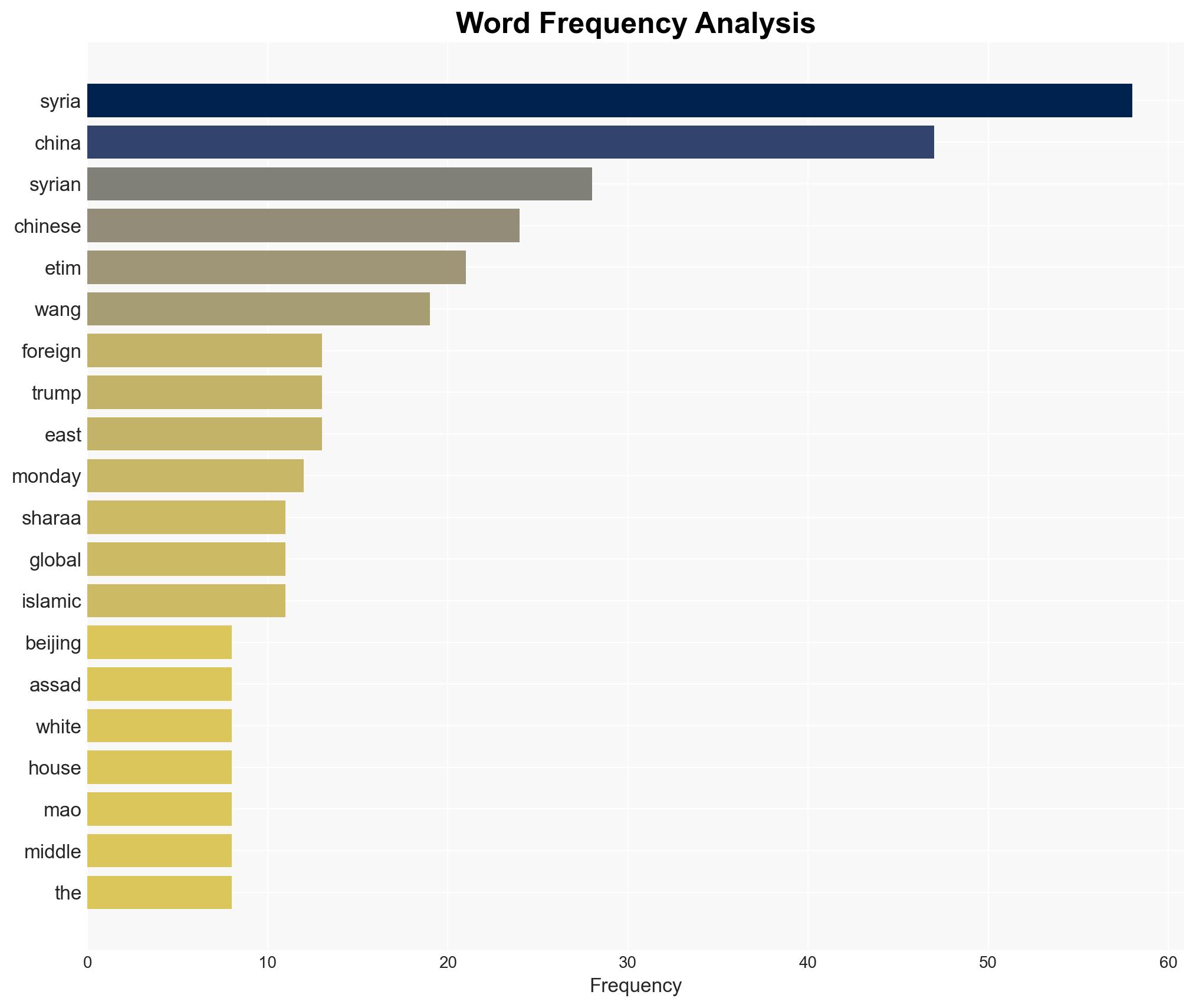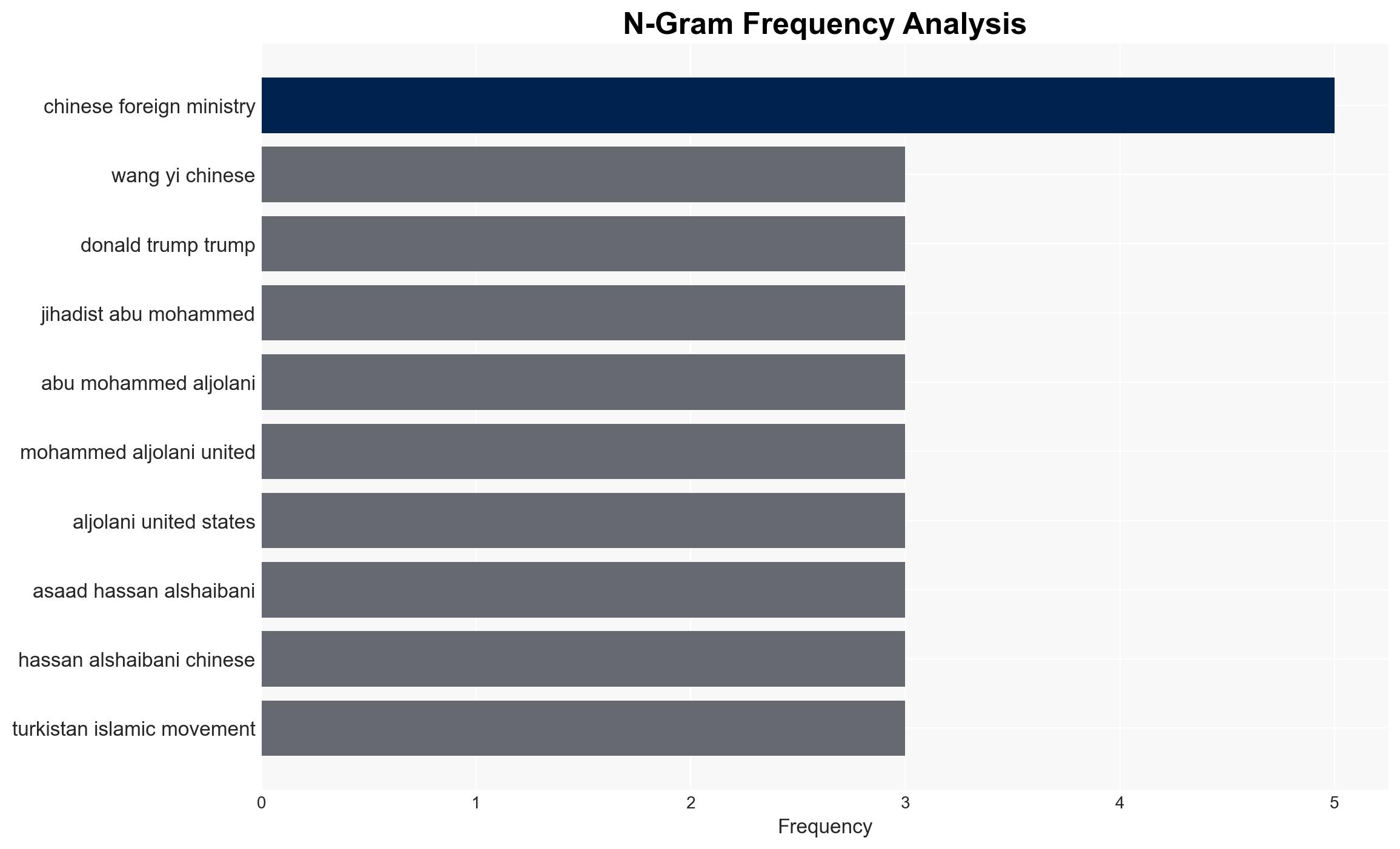Syrias Jihadi Rulers Bend the Knee in Beijing After President’s White House Visit – Breitbart News
Published on: 2025-11-18
AI-powered OSINT brief from verified open sources. Automated NLP signal extraction with human verification. See our Methodology and Why WorldWideWatchers.
Intelligence Report:
1. BLUF (Bottom Line Up Front)
The strategic alignment between Syria’s current regime and China, as indicated by recent diplomatic engagements, suggests a shift in Syria’s international alliances, potentially reducing Western influence in the region. The most supported hypothesis is that Syria is leveraging Chinese support to counterbalance Western sanctions and gain economic and political stability. Confidence Level: Moderate. Recommended action includes monitoring Syria-China relations for shifts in regional power dynamics and assessing the impact on U.S. interests in the Middle East.
2. Competing Hypotheses
Hypothesis 1: Syria is aligning with China to secure economic and political support, countering Western sanctions and gaining leverage in postwar reconstruction efforts. This hypothesis is supported by Syria’s participation in the Belt and Road Initiative (BRI) and discussions on economic opportunities and counterterrorism.
Hypothesis 2: The engagement is primarily a symbolic gesture by Syria to signal openness to diverse international partnerships, without significant long-term strategic realignment. This hypothesis considers the possibility of Syria maintaining a balance between Eastern and Western powers to maximize benefits.
Hypothesis 1 is more likely due to the tangible economic incentives and political support offered by China, which align with Syria’s immediate needs for reconstruction and sanction relief.
3. Key Assumptions and Red Flags
Assumptions: It is assumed that China’s economic offers are genuine and not merely diplomatic rhetoric. It is also assumed that Syria’s regime is stable enough to engage in long-term international agreements.
Red Flags: Potential deception indicators include China’s historical use of economic leverage for political influence and Syria’s opaque governance, which may obscure the true nature of agreements. The narrative presented by state-run media could be biased, emphasizing positive outcomes while downplaying potential dependencies.
4. Implications and Strategic Risks
The alignment with China could lead to reduced Western influence in Syria, impacting U.S. and EU strategic interests in the Middle East. Economic dependencies on China may limit Syria’s policy autonomy. The involvement in the BRI could expose Syria to debt risks, similar to other participating countries. Additionally, China’s emphasis on counterterrorism cooperation may influence Syria’s internal security policies.
5. Recommendations and Outlook
- Monitor developments in Syria-China relations, focusing on economic agreements and military cooperation.
- Engage with regional allies to assess the impact of Syria’s alignment on Middle Eastern geopolitics.
- Consider diplomatic initiatives to counterbalance Chinese influence in Syria.
- Best Scenario: Syria uses Chinese support to stabilize economically without compromising its sovereignty.
- Worst Scenario: Syria becomes heavily indebted and politically aligned with China, reducing Western influence.
- Most-likely Scenario: Syria leverages Chinese support for immediate economic relief while maintaining some level of engagement with Western powers.
6. Key Individuals and Entities
Ahmed al-Sharaa, Bashar al-Assad, Wang Yi, Asa’ad Hassan al-Shaibani, Mao Ning.
7. Thematic Tags
Cybersecurity, Geopolitics, International Relations, Economic Strategy, Middle East, China-Syria Relations
Structured Analytic Techniques Applied
- Adversarial Threat Simulation: Model and simulate actions of cyber adversaries to anticipate vulnerabilities and improve resilience.
- Indicators Development: Detect and monitor behavioral or technical anomalies across systems for early threat detection.
- Bayesian Scenario Modeling: Quantify uncertainty and predict cyberattack pathways using probabilistic inference.
- Narrative Pattern Analysis: Deconstruct and track propaganda or influence narratives.
Explore more:
Cybersecurity Briefs ·
Daily Summary ·
Support us





